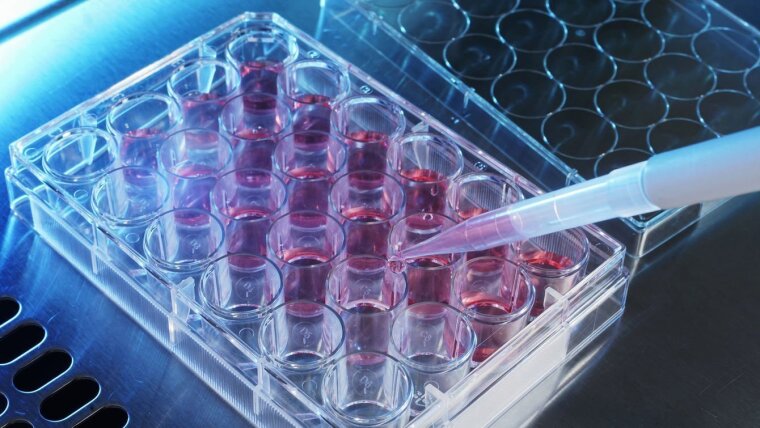
-
Regulation of somatic hypermutation
The basic mechanism of somatic hypermutation is now quite well understood. Activation-induced deaminase (AID) introduces lesions into the transcribed antibody genese, which are processed by different repair pathways in an error-prone manner. This can lead to lesions in other cellular genes and therefore to lymphomagenesis. We do not yet understand how somatic hypermutation activity is focussed to antibody genes, but we know that both specific targeting of AID as well as a locus-specific perturbation of DNA repair are required. In addition, several pathways by which hypermutation is deregulated remain to be elucidated, e.g. the pathways by which hypermutation is kept constitutively active in lymphoma cells and how aberrant hypermutation of other cellular genes occurs in some lymphomas.
In a project on AID, we are investigating whether AID itself is able to influence DNA repair capacity and fidelity in cells. To do this, we are using cell lines overexpressing AID and investigating the activity of different repair pathways.
In a project on DNA repair, we are investigating the role of homologous recombination in hypermutating cells. We and others could show that in AID-expressing cells, homologous recombination is important for the adequate repair of different non-antibody genes damaged by AID, and that AID-expressing cells die upon inactivation of homologous recombination. We are analyzing the molecular basis of this cell death in vitro and in vivo with the aim of making this approach adaptable for the therapy of AID-expressing lymphomas.
In a project on regulation of hypermutation, we are investigating which immune signalling pathways drive the constitutive hypermutation observed in some lymphomas. We are investigating the influence of signalling via the NFAT, NF-kappaB, MAP kinase, JAK/STAT und PI3K pathways on somatic hypermutation in vitro in cell lines as well as in mouse models.
-
B cells and antibodies in Candida albicans infection
Candida albicans is a harmless commensal of humans, i.e. it is present in the gut in most humans and does not cause any problems. Under certain circumstances, such as immunosuppression, systemic infection with Candida albicans in the blood stream can occur which is fatal in 40-70% of cases. It is well established that neutrophils and macrophages (and the T cells regulating them) play an important role in defence against Candida albicans . The role of B cells has long been controversial and is the focus of our research.
We have shown that murine and human B cells are activated by Candida albicans in vitro and in vivo, leading to increased antibody and IL-6 production. We also found that human antibodies against Candida albicans, which are detectable in many humans, protect against Candida albicans infection in in vitro infection models. Based on these findings, we have analyzed the role of B cells in in vivo infection models in mice and are currently focusing on which B cell functions are important for fighting Candida albicans infections in such models.